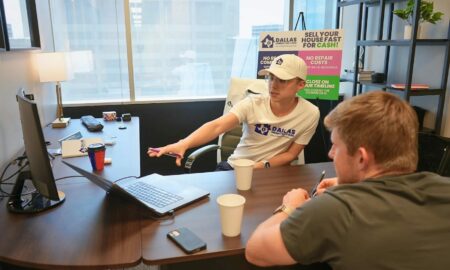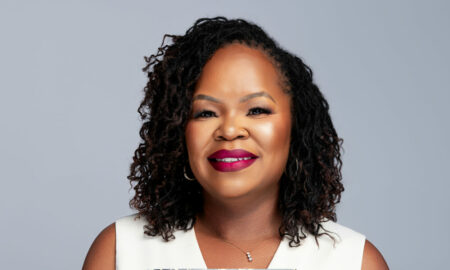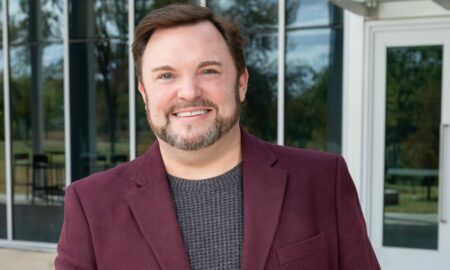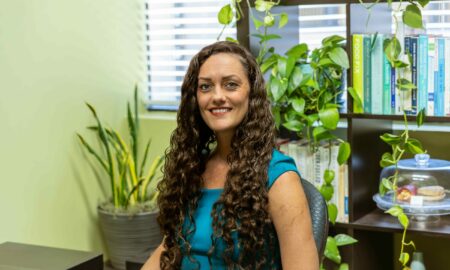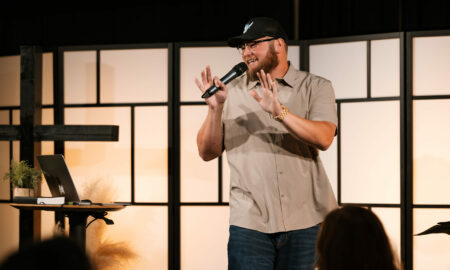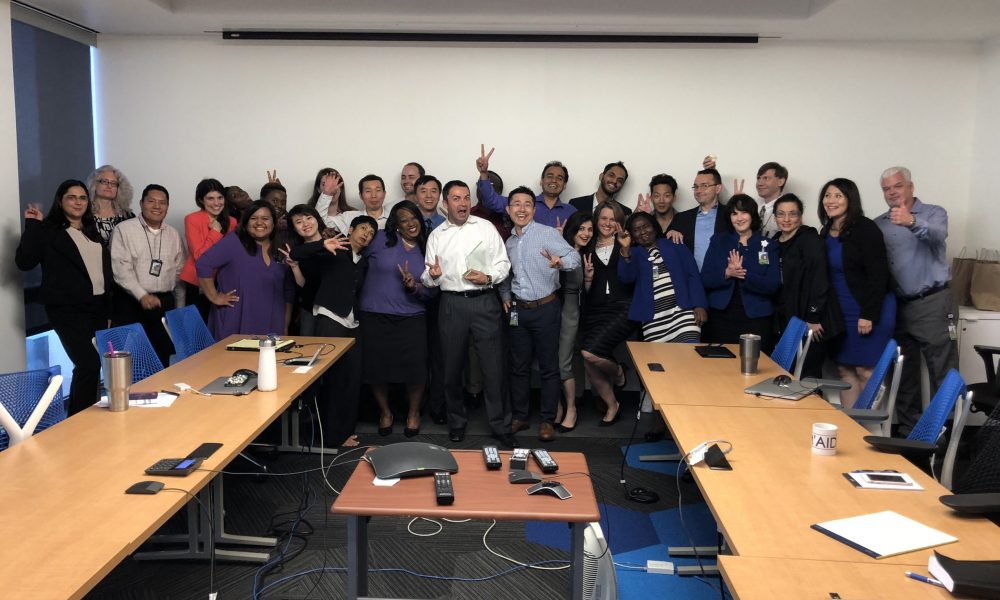

Today we’d like to introduce you to Steve Miff.
Steve, let’s start with your story. We’d love to hear how you got started and how the journey has been so far.
My life has definitely been more of a winding road than a straight line. I’ve experienced different cultures, a vast spectrum of social and economic opportunities/challenges, and a variety of educational and work opportunities. Through it all, the two constants have been my close family relationships and a pre-disposition to try new things. Today, I’m fortunate to be in a role where I can draw from these life experiences and make a tangible difference in people’s lives. I am proud to be leading PCCI, where we are using the latest technology to help people across Dallas and other parts of the country to improve their health.
I’m a first-generation American and have experienced first hand many of the same challenges as the people in our community that we support. My family escaped to the US in 1987 from Romania. I was 15 at the time and enrolled in high school in Chicago shortly after we arrived. I did not speak much English, but was good at math and soccer, which helped me connect despite the language barrier. My father had been an orthopedic surgeon in Romania but was working two jobs while studying for his medical equivalency exam — part-time at a medical office and as a Dominos delivery driver. I had a part-time job at the same Dominos store; most nights we would close together: I was taking orders and making pizzas and my dad would deliver them. We also painted rental apartments to supplement our income and make ends meet. We were trying to support my mom’s visa to come to join us. Most days, we had less than $100 in our checking account and were one small hiccup away from eviction. We did work hard but were also blessed with a lot of good luck — many in our situation were not so fortunate. My dad re-did his residency and became a board-certified Internist. Even now, at 70 years old, he still works two jobs — head of the Emergency Department and Chief of the Medical Staff at Methodist Hospital of Chicago and as head of his own private medical practice at Swedish Hospital. He treats everyone, regardless of their ability to pay, and says he can’t retire since his patients still need him too much. He gets up at 5 am every morning to round on hospital patients and ends his day at 6-7pm after office hours. He runs 3 miles each night after dinner. I was blessed to have such a positive role model and his life and journey helping others have been the inspiration for me as I’ve branched into different areas of my own career.
After surviving our financial struggles during high school, I received a merit scholarship from Evanston Township H.S. in Illinois to attend Northwestern University, where I ended up receiving four degrees, including a Ph.D. in biomechanics, and where I taught as an adjunct professor for five years. This is also where I met my wife of 22 years, who has another two Northwestern degrees — we love to joke that we “bleed” purple.
Since graduating, I’ve held a variety of roles in many different healthcare organizations: evening operating room coordinator at St. Agnes Hospital in Baltimore; early-stage DNA researcher at the National Institute of Technology in Gaithersburg, MD; prosthetic and orthotic researcher on several VA grants at the Rehabilitation Institute of Chicago working with veterans returning from combat; and working with leading academic and top national health system while in senior leadership positions at Sg2 (Skokie, IL) and Vizient Inc, (Irving, TX). My motivation is to try and keep up with the role models in my life and the virtues of my father and my family exemplify… hard work, help for others, support of this country, and trust in God.
The near misses and close calls of my own experiences motivate my work with PCCI and with our partners at Parkland and across Dallas. If my father and I had one health care emergency – just one – I’m not sure we would have made it. There must be a different way we can reimagine health care and the adjacent community support network to give others the opportunity I had. At PCCI, we’re a highly skilled R&D innovation shop in the AI and Machine Learning space – sort of an oxymoron as a non-profit. We need more organizations like us to pioneer new ways to health.
At PCCI, our passion to serve is what drives each of us to create practical, forward-thinking solutions. With each small step or piece of computer code, I work towards fulfilling a vision of creating a world of connecting communities where every health outcome is positive with no barriers to care. I also strive of being a role model for our six-year-old the way my father was for me.
Has it been a smooth road?
Also, leading and driving transformational innovation is both a sprint and a marathon. You don’t only need to be comfortable with failure, but actually, need to embrace it and use it as an advantage. At PCCI, we use the concept of “fail early and often”. We use an innovation cycle approach where we iterate a lot during an early cycle of development to find out quickly if something works or not before we invest a significant amount of time and money.
So, as you know, we’re impressed with PCCI (Parkland Center for Clinical Innovation) – tell our readers more, for example, what you’re most proud of as a company and what sets you apart from others.
Parkland Center for Clinical Innovation(PCCI) is a non-profit research and innovation laboratory affiliated with Parkland Health and Hospital System. We design, build, test and deploy programs that address individual/community health and SDoH needs. We use predictive and prescriptive analytics to risk stratify individuals based on their needs and embed the algorithms into updated workflows/programs at the point of care to align and connect services and engage individuals.
We build collaborative programs and leverage an innovation portal to facilitate co-creation and knowledge transfer across innovative, partner organizations.
Using advanced analytics, predictive modeling, artificial intelligence and machine learning, PPCI’s team of data scientists and clinicians develop cutting-edge products that can accurately and proactively identify high-risk individuals to intervene upstream to reduce utilization and costs while enhancing quality and patient engagement. Many of these programs (some of which are listed below) are enhanced by the addition of platforms (mobile or SaaS) that provides two-way communication and information sharing between patients, providers, community-based organizations and care managers. These programs are targeted to meet the needs of hospital systems and IDNs, payers and/or organization that currently hold risk for the populations they are accountable for, and local municipalities and communities.
We are unique by being a non-profit in the community health space, yet have the skill and capabilities of a leading technology and analytics organizations. We employ 8 full-time physicians, a team of ten world-class data scientists, a sizable team of PhDs and MS researchers, and a team of innovation/agile trained project managers. We are proud of the Connected Communities of Care and the Pieces Iris technology we deployed across Dallas with our partners at Pieces Technology. It’s the most comprehensive, most robust and most widely deployed solution of its kind in the country. We’re also developing some really unique new solutions leveraging in-home personal assistance devices (Amazon Echo) and wearable technology. It’s very cutting edge in health care.
I was very surprised and humbled for being awarded the Community Council Social Innovator of the Year Awards, but I am most proud and pleased when we get direct feedback from frontline staff that our analytics and programs literally helped save a life or helped an individual access service for themselves and their kids.
Let’s touch on your thoughts about our city – what do you like the most and least?
Our city is a true land of opportunity, but it’s a tale of two different worlds. We moved to Dallas from Chicago in 2012 after spending over 30 years in Chicago. My wife and I love how diverse the city is and how many different cultures are thriving across the city. We love food, so we’ve enjoyed exploring the diverse and ever-changing culinary scene in Dallas. At the same time, I was shocked by the disparity present across Dallas County and DFW. In such a rich and fast growth environment, there are way too many individuals and families that are struggling to make ends meet and don’t have access to the most basic daily needs. I am pleased to work for an organization trying to make a difference. We cherish being affiliated with Parkland Hospital and Health System who is a pillar of innovation, hope, stability and compassionate care for our community.
Contact Info:
- Address: 8435 Stemmons Freeway Suite 1150 Dallas, Texas 75247
- Website: https://pccinnovation.org/
- Phone: 214.590.1168
- Email: pcciceo@phhs.org
- Twitter: @PCCInnovation
- Other: https://www.linkedin.com/company/pcci/





Getting in touch: VoyageDallas is built on recommendations from the community; it’s how we uncover hidden gems, so if you know someone who deserves recognition please let us know here.












